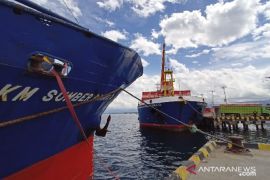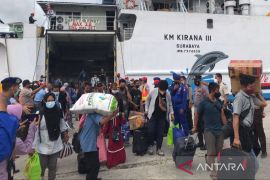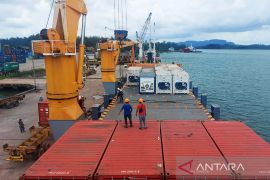"The two routes have been functioning for the transportation of logistics and passengers. However, only small ships have been in use," Bambang Prihartono, the director of transportation affairs of the National Development Planning Board (Bappenas), stated here on Thursday.
He added that the two routes had earlier been operated by state-owned shipping line firm PT Pelni, but it had not been in line with the sea toll road concept then.
However, PT Pelni has been operating them in accordance with the sea toll concept since February this year, Prihartono affirmed.
Ships plying the two routes transport logistics and passengers twice a day.
"So they are operating on a schedule. In the past, the routes were operated based on transportation orders for logistics or passengers," he pointed out.
Prihartono explained that the routes had yet to become the main ones in the sea toll road concept, but still involved short sea shipping.
While waiting for the development of 24 sea toll ports, the government is trying to operate sea toll shipping on short routes, especially in eastern Indonesian regions.
"We need to expedite the development of the 24 sea toll ports. Local industries will operate easily if the seaports are made ready," Prihartono remarked.
Of the 24 seaports, 23 are expanded seaport projects, while the remaining one is a new seaport to be developed in Sorong, Papau province.
Furthermore, Prihartono revealed that the Bappenas will soon publish a special book on the need for investment and sea toll development plans. If the earlier concept designed by the Bappenas is considered, the need for investment to develop the sea toll road will amount to Rp700 trillion.
A majority of the funds, as much as Rp243 trillion, will be used for the development of the 24 strategic seaports, while the development of non-commercial seaports will cost Rp198.1 trillion.
The remaining funds will be used to procure ships, which will need an investment of Rp101 trillion, to develop short sea shipping, which will cost Rp7.5 trillion, and to build cargo facilities, which will account for Rp40.6 trillion.
(A014/INE)
EDITED BY INE.
Editor: Suryanto
Copyright © ANTARA 2015











